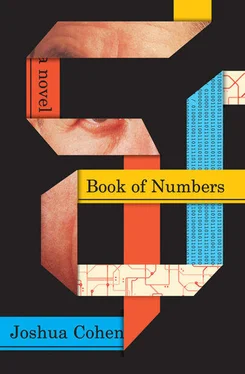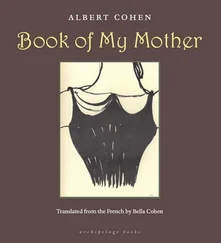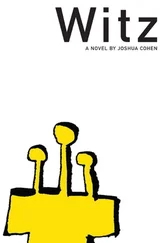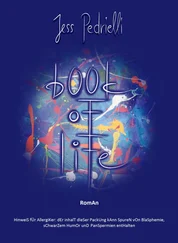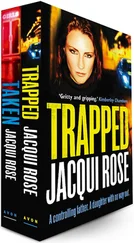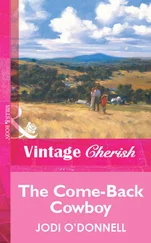Every September the city has that nervy crisp air, that new season briskness: new films in the theaters where after a season of explosions serious black and white actors have sex against the odds and subplot of a crumbling apartheid regime, the new concert season led by exciting new conductors with wild floppy hair and big capped teeth premiering new repertoire featuring the debuts of exciting new soloists of obscure nationalities (an Ashkenazi/Bangladeshi pianist accompanying a fiery redheaded Indonesian violinist in Fiddler on the Hurūf ), new galleries with new exhibitions of unwieldy mixedmedia installations ( Climate Change Up: a cloud seeded with ballot chad), new choreography on new themes ( La danse des tranches, ou pas de derivatives ), new plays on and off Broadway featuring TV actresses seeking stage cred to relaunch careers playing characters dying of AIDS or dyslexia.
September’s also the time of new books coming out, of publication parties held at new lounges, new venues. Which was why on that freefloating Monday after Labor Day, with the city returned to itself rested and tanned, my publisher gathered my friends, frenemies, writers, in the type of emerging neighborhood that magazines and newspapers were always underpaying them to christen.
Understand, on my first visits to NY the Village had just been split between East and West. SoHo went, so there had to be NoHo. When I first moved to the city the realestate pricks were scamming the editors into helping reconfigure the outerboroughs too, turning Brooklyn, flipping Queens, for zilch in return, only the displacement of minorities despite their majority. At the time of my party, Silicon Alley had just been projected along Broadway, in glassed steel atop the Flatiron — each new shadow of each new tower being foreshadowed initially in language (sarcastic language).
Call this, then, as I called it, TriPackFast: the four block triangle north of the Meatpacking District but south of the barred lots for Edison ParkFast. Or Teneldea: the grim gray area beginning where 10th Avenue switches from southbound to northbound traffic and ending where the elevated rail viaduct crosses that avenue just past the NY offices of the Drug Enforcement Administration.
A pier, jutting midway between where the Lusitania departed and the Titanic never arrived, where steamers and schooners had anchored to unload the old riches of the Old World like gold and silver and copper slaves, before wealth turned from tangible goods and favorable tradewinds to a matter of clicking buttons — where the newest warehouses were filled with “cultural capital”—where “money,” which was still silver in French ( argent ) and gold in German ( Geld ), had become a gentrified abstraction.
A purposefully unreconstructed but rebranded wreckage harbored on the Hudson — the interior resembled a ruin, a rusted halfgutted rectilinear spanse. Hangaresque, manufacturingesque. Previously a drydock, formerly a ropery. Had it just been built, it would’ve been a marvel — the type of modern design that architects and engineers torment themselves over, the natural course of things achieved by falling apart: foundation issues, an irresolvable roof, problems with the electric and plumbing.
A table was set, laid with midpriced wine to be poured not into plastic cups but glass glasses, that’s how intensely my publisher was investing in me, offering red and white and, blushing, trays of stinky chèvres and goudas, muensters, gruyères, a dozen varieties of crackers, veggie stix ’n’ dip, sexual clusters of muscats, sultanas, ruby grapes without seed, selections of meze with pita.
A trio performed klezmer, or rehearsed it, a screechy avantklez that didn’t distinguish between rehearsal and performance: a trumpeter, bass, drums, soloing always in that order.
Copies of the book were piled into pyramids? ziggurats? but ziggs are goyish, the pyramids are for the Jews.
The press began arriving, all my future peers, my colleagues. The newspaper people, the dailies, a half hour fashionable. The magazine people, the weeklies, the monthlies, an hour. Aaron’s joke: the longer the leadtime, the later they showed. A cymbal tsked. The bass followed a note and stayed with it, not a note so much as a low throb, as if it were the guest of honor everybody felt they had to notice but nobody much liked to be stuck with, just the excuse for all the busyness swirling — that guest was me, terrified.
I was uncomfortably complimented in my suit, the suit that’d needed shoes, the shoes that’d needed socks, belt, shirt, tie — the only thing I’d already owned was the underwear.
The mic was taken from the trumpeter, tapped. Wine courtesy of Pequot Vintners, beer from Masholu, please join me in thanking our generous sponsors — that was Kimi!
Everyone applauded, drowning her introduction of Finnity.
My book was called “a migrant story,” “a quintessential American tale”—inheritance of loss, bequest of suffering transmitted genetically, the people of the book, after millennia of literacy, interpretation, commentary, the book of the people of the book, at the end of the shelf of the century.
Finnity, all prepped, Harvard vowels and Yale degree, tweedly, leatherpatched not just at elbow but also at shoulder — he would’ve worn patches on his knees, on his khakis. He mispronounced tzedakah, “said ache a,” misused tshuvah, “a concern for Israel in the guise of a tissueba,” mentioned the Intifadas, all zealotry being inherently suicidal, democratic pluralisms, Zionisms plural, concluded by saying in conclusion twice, “It’s the testimony of two generations,” everyone nodded, “a witness to one America under or over God, with or without God,” and everyone nodded again and clapped.
It was his honor, publishing me.
I dragged up to the front like a greenhorn with a trunk and Finnity went to hug or kiss and I went to shake his hand.
I gave a speech — and the speech was my Acknowledgments (the book itself didn’t have any). I had a lot of people to thank. My mother, for one, who fled Poland, for giving me the money to travel to Poland, only so I could write a book about her life. (I left the inheritance from my father out of it — spent.)
I thanked my Tante Idit and Onkel Menashe, whom I visited and interviewed in Israel, and my cousin Tzila, who drove me directly from a Tel Aviv club to a shabby Breslov minyan in Jerusalem so I could interrogate a former block commander who’d been interrogated before by better, the obscurer relations, honorary inlaws, and strangers who’d responded to my letters from Kraków, Warsaw, Vienna, Graz, Prague, Bratislava, the good people of Los Angeles, and of Texas, Florida, and Maine (survivors), the faculties of Harvard, Yale, and Columbia, and the stern lady clerks of the Polish State Archives, who helped me sift cadastral registries, deportation manifests, and Zyklon B inventories, who not only confirmed Moms’s memories — the color of a hat ribbon or shoelace, the flavor of the cream between favorite wafers — but who gave them flesh and future too — the location of Gruntig’s butcher stand (by the mikvah, on what became the corner of Walecznych and Proletariuszy Streets), the fate of schoolfriend Sara (Cuba, aneurysm) — assisting with the granular details: how many grams of bread my uncles were allotted in what camp on what dates, how many liters of soup were allotted per prisoner per week/month in what camp vs. the amount on average delivered. How my grandparents last embraced in Zgody Square, Kraków ghetto, 10/28/42, 10:00.
Appreciated — and when I was finished everyone stormed to congratulate me, shake my hand, and Caleb nodded, from a huddle of girls, and Aaron nodded too, gesturing for a smoke above a scrim of critics, reviewers. Someone congratulated me by hugging and kissing and someone said, “Introduce me to your mother.” But Moms wasn’t in attendance, she hadn’t been invited. “She wouldn’t have enjoyed it — this isn’t exactly her crowd.”
Читать дальше
